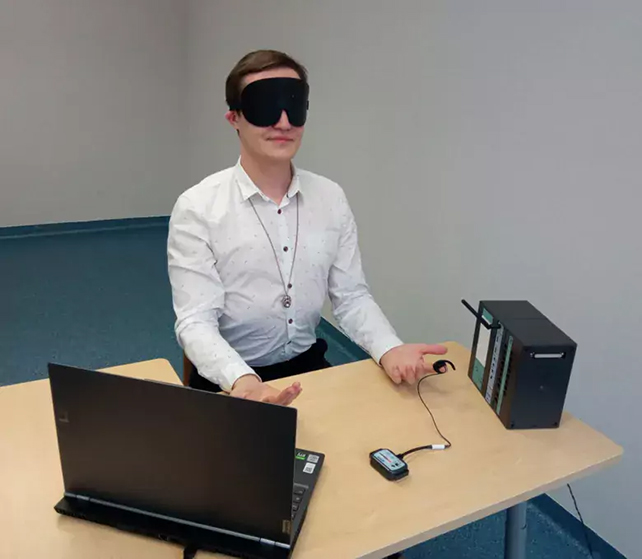Blind people are better than sighted people when it comes to sensing their own heartbeats, a new study shows – hinting that not being able to see as much externally leads to a more acute awareness of what's happening internally.
Researchers hooked up a pulse oximeter to 36 blind people and 36 age- and sex-matched people with full sight. While each participant's heartbeat rate was scientifically measured, they were also asked to count their own heartbeats without checking their pulse or touching their own bodies in any way.
With 1.0 representing a perfect score, the blind individuals scored an average accuracy of 0.78, while the sighted individuals registered 0.63 on average. It's more evidence of how other senses can be enhanced in people who are visually impaired.

"This suggests that brain plasticity following blindness leads to superior ability in sensing signals from the heart, which has implications for the study of bodily awareness and emotional processing in blind individuals," write the researchers in their published paper.
Technically, this is known as interoception, sensitivity to stimuli inside the body. Up until now, it wasn't clear how the neuroplasticity in blind people – the way the nervous system shifts to compensate for a lack of vision – might also affect interoception.
While this is a relatively small study, it points to a noticeable link. Levels of interoception have also been associated with emotional processing – how well we're able to perceive emotions in ourselves and in other people.
The question this study doesn't answer is why interoception is improved in blind people, but it's something that can be tackled in future research. It could also be that those without sight are picking up heartbeat signals from other areas of the body besides the heart, the team suggests.
"We know that heart signals and emotions are closely interlinked," says neuroscientist Dominika Radziun from the Karolinska Institute in Sweden.
"For example, our hearts beat faster when we experience fear. It is possible that blind individuals' enhanced sensitivity to signals from their own heart also impacts their emotional experiences."
Interestingly, the two groups showed no major differences in terms of their actual heartbeat rate or how well they perceived they were monitoring it. That suggests the gap between the sets of participants does indeed relate to interoception.
Different parts of the body linked to the processing of heart signals, like the anterior insula in the brain – a region of the insular cortex, involved with regulating subjective feelings – could be analyzed specifically to further this research, the authors of the new study suggest.
As with many studies into blindness, the findings don't just tell us more about what it's like to live without sight and how the brain and body adapts, but also about the capabilities and the versatility of the brain in general.
"It gives us important information about the brain's plasticity and how the loss of one sense can enhance others, in this case the ability to feel what happens inside your own body," says Radziun.
The research has been published in the Journal of Experimental Psychology: General.
